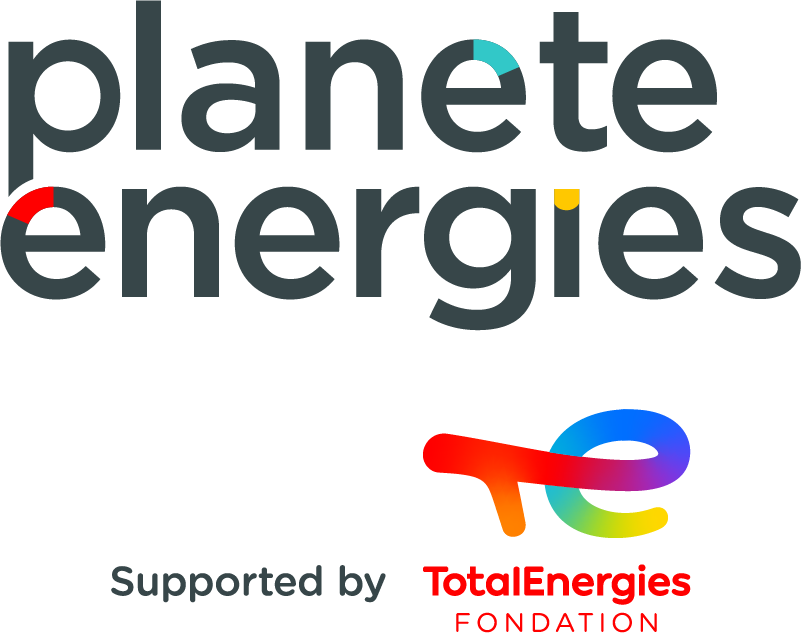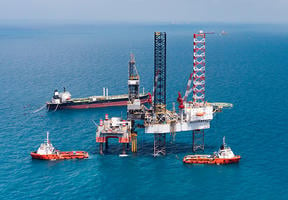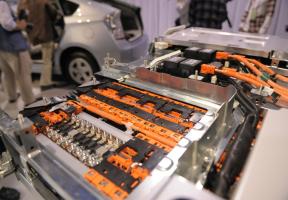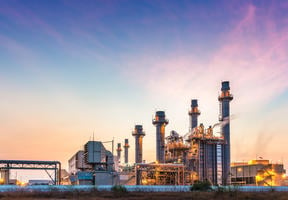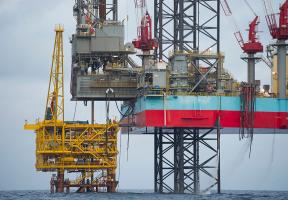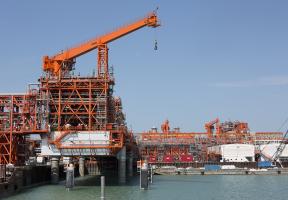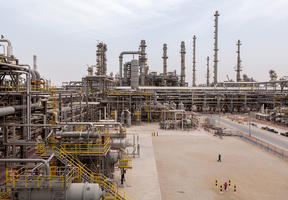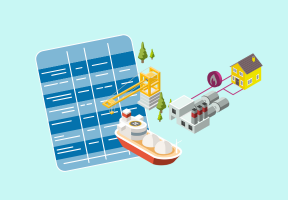Energy in Africa
10 min read

Astria Fataki
Furthering Energy Development in Africa Through Education
Energy Generation is a young, pan-African organization built on the belief that young people across the continent can solve the challenge of access to energy within a generation, using homegrown solutions. With support from international industrial groups and public institutions, it focuses on theoretical and practical training as the key to success. In this article, founder and president Astria Fataki explains her approach to energy development by and for young Africans.
I believe that training young people of all levels of experience to set up projects, create companies and harness innovative technologies, using a combined theoretical and practical approach, is the key to the in Africa.
This has been a conviction of mine ever since I volunteered in India when I was very young. I was outraged by the inequality I was seeing in the world and wanted to do something about it. Then I visited a village that had just benefited from a rural electrification program, Lighting a Billion Lives, which installed solar kiosks for charging lamps and cell phones.
The program was so simple, but it changed the lives of the people living in the village – it meant they were able to work later in the evening, helped women feel safer when they went out, and improved childbirth conditions. In the West, we just don’t realize. For us, is immediate and permanent. All you have to do is flick a switch. But in other parts of the world, access to electricity is still something people urgently aspire to.
When I came back from India, I looked into implementing a similar model for Africa with help from others in my Master’s course. We started off by installing solar kiosks in seven villages in the Republic of the Congo and Mali. But we faced a number of challenges, mainly because the equipment was imported, we had to bring people over from France and India for certain skills, and long-term maintenance proved problematic. In India, there was already relatively widespread take-up of the technology, so a lot of the products and replacement parts were available locally. But in Africa, material and human resources are more scarce. I realized that it was absolutely vital to develop African-made solutions so we could increase efficiency and reduce the high costs and long lead times associated with entirely imported alternatives.
At the same time, I noticed that a lot of young Africans had some very innovative ideas to resolve energy access problems. Since they were faced with the same challenge on a daily basis, they were inspired to come up with simple, practical solutions. The projects would frequently appear in the media, but then after a few weeks of buzz they would grind to a halt, often because they didn’t have enough support or guidance.
Theoretical and Practical Training
I started thinking about a model to turn these budding inventors – often young, and with little relevant training – into entrepreneurs via an educational approach, providing them with a program that was 50% theoretical and 50% practical. This resulted in the Energy Generation Academy being founded in October 20161.
Since 2016, we have trained 14 young people from 12 different countries, who have developed functional and astoundingly ingenious prototypes. Drawing on the principle of frugal innovation, participants have worked on energy technologies as diverse as solar, wind, , and even , a process that makes from plastic waste.
We now offer two types of training in parallel: an entrepreneurial course and a technical course.
The entrepreneurial course is intended to train entrepreneurs and young professionals in the energy industry. Spanning two years, it helps participants transform their ideas into real-world projects by developing a functional prototype and a business model. At the end of the course, they have a minimum viable product so that they can launch a business in optimal conditions.
The technical course trains technicians in the energy industry, particularly for the installation and maintenance of energy systems. We currently train solar technicians, but also aim to offer programs in other technologies such as wind , biomass and hydrogen.
We plan to extend the model to some 20 African countries over the next five years, starting in 2019 with Ghana, Côte d’Ivoire and Nigeria as well as Togo.
Through our dual entrepreneurial and technical approach combining theoretical and practical training, we work to fully unleash the creative potential of young people in Africa every day.
Astria Fataki is a 28-year-old Franco-Congolese entrepreneur passionate about energy development in Africa. On a macro-economic level, she has been working since 2013 as a consultant on public-private partnerships to construct photovoltaic solar power plants. On a micro-economic level, she founded the pan-African Energy Generation organization in 2016 to develop business initiatives by young Africans in the energy industry. Astria has a Master’s degree in international public-sector management from Sciences Po Paris.
Source:
- See the training programs on the Energy Generation website

Phlippe Chalmin
Africa Needs to Use Its Energy Resources More Efficiently
By 2050, Africa’s population is set to double, accounting for almost one-quarter of the world total. But today, two-thirds of sub-Saharan Africa’s inhabitants do not have access to modern, reliable energy sources. Given these circumstances, energy, be it from fossil fuels or renewables, is of strategic importance for the development of the continent. Professor Philippe Chalmin, an economist specialized in commodities markets and the founder of Cercle Cyclope, outlines the main trends in this article.
Sub-Saharan Africa has a wide range of energy resources. The region boasts high volumes of production, primarily in South Africa and Mozambique. In addition, although its oil and gas reserves do not compare to those found in the Gulf region or even Venezuela, both Nigeria and Angola are large oil-producing countries. There are also a number of small and medium-sized producers. On the western coast, examples include Gabon, Ghana and, to a lesser extent, Côte d’Ivoire. In the eastern part of the continent, natural gas is currently being developed at many sites off the coast of Mozambique. Besides fossil fuels, sub-Saharan Africa counts some very large dams. There is a great deal of scope for developing hydropower; however, these projects have been hampered by the need for heavy investment.
Despite its wealth of natural resources, sub-Saharan Africa is far from being energy independent. The continent’s challenge is not just to produce energy resources, but also and above all to process and consume them locally.
Africa has by far the greatest number of homes without electricity worldwide, and the lack of infrastructure impacts both rural and large urban areas, which are growing at a steady pace. Power facilities in many cities leave a lot to be desired. Even relatively well-equipped and advanced countries like South Africa have been incapable of maintaining their power grid sufficiently.
Africa is also heavily dependent on imports. It ships in fuel because its refining capacity is so low, and the natural gas and coal that drive its power plants is largely sourced from other regions.
The reasons for this paradox – energy exporting countries suffering from shortages – are many. The great distances in Africa pose a major problem in ways they do not elsewhere. There is also what I call the “paradox of plenty”, which is simply the challenge of managing revenues, i.e., investing oil money in developing infrastructure. Yet this income is too often wasted, as we have seen in countries like Nigeria, Gabon, the Republic of the Congo and Angola.
Renewables, a Potential Game Changer
Renewable energies are without question an opportunity, with the potential to effect change in the same way as the telephone has. For many years, telecommunications were provided via telephone wires that were few and far between in Africa. With the arrival of cellular phones and satellite connections, Africa was able to catch up with the rest of the world. Today, although access to telecommunications is not always easy, it is nevertheless widespread.
Renewable energies could one day play the same role in areas where power grid infrastructure represents a considerable investment. Solar and wind power could provide a certain degree of in far‑flung villages, where small solar lighting units are already proliferating.
I am, however, unsure that solar and wind could replace conventional power sources when it comes to supplying large urban areas that, as I mentioned earlier, are growing steadily and require more substantial infrastructure. Potential solutions include, for coastal cities in particular, gas-fired power plants supplied with LNG from regasification facilities and floating units. But this prospect is still a long way off.
The implementation of these strategies requires a great deal of investment. Despite regular waves of Afro-optimism that portray Africa as the “continent of the future”, it cannot be denied that many African nations have high country risk and that instability is the rule rather than the exception. Some investors accept these risks for developing oil or natural gas projects, but hesitate when it comes to investing in improving or connecting power grids. Investments sometimes lack transparency, and this is perhaps particularly true in countries with abundant natural resources. All of this makes Africa a fascinating continent, but one where countries are run according to extremely different criteria from each other and efforts still have to be made in terms of governance.
Philippe Chalmin graduated from HEC international business school in Paris in 1974 and has a teaching qualification in history and a Ph.D. in arts and social sciences. He is a university professor specialized in commodities markets and coordinates the annual publication of the Cyclope report on the cycles and trends of products and trade. He has frequently worked alongside both private groups and public institutions, in particular in his roles as a World Bank consultant and member of the Council of Economic Advisers for the French Prime Minister (2006). A commentator for leading media outlets, he also publishes regular posts on his blog.
